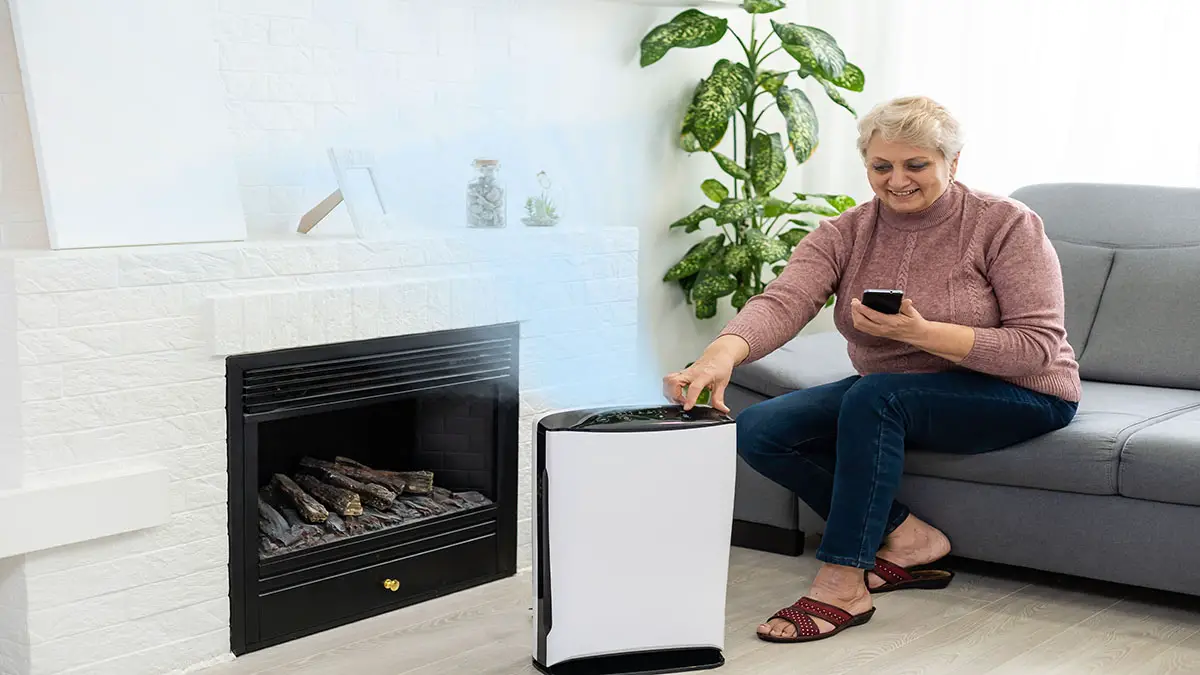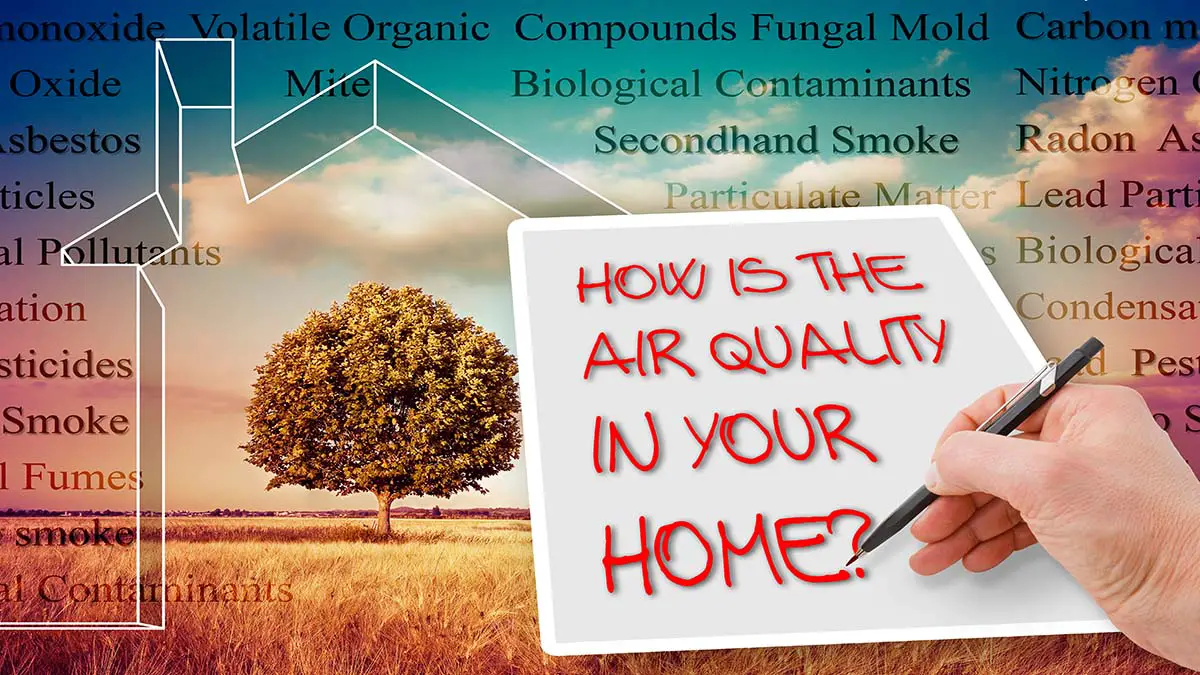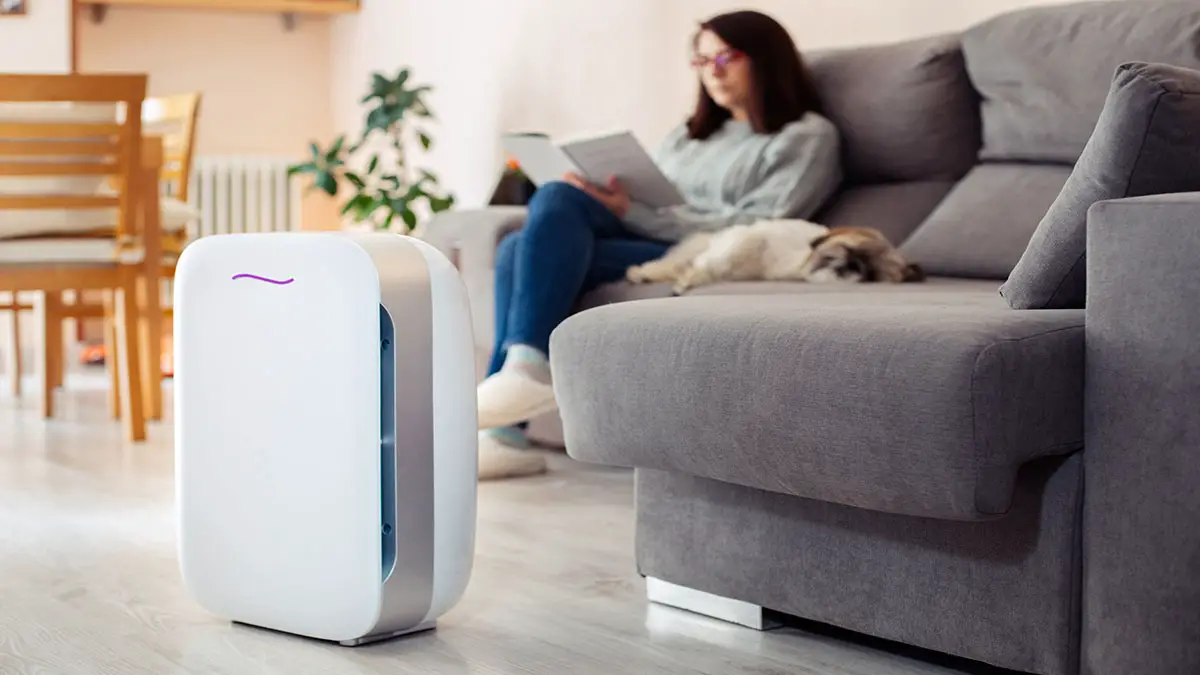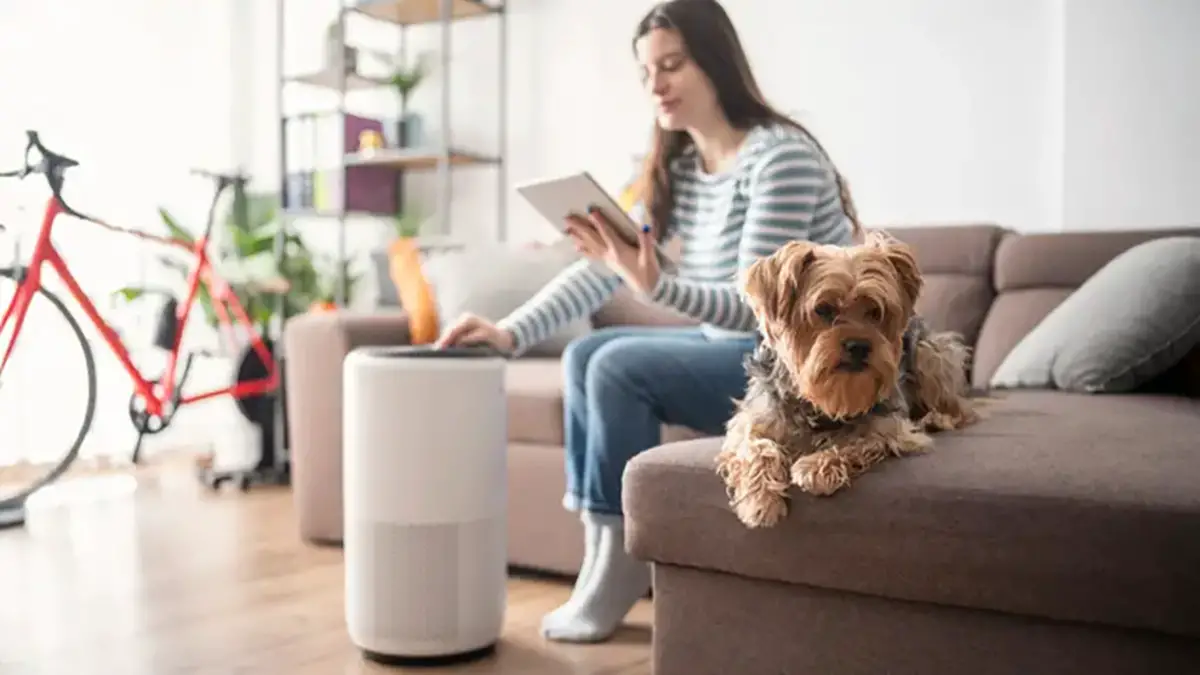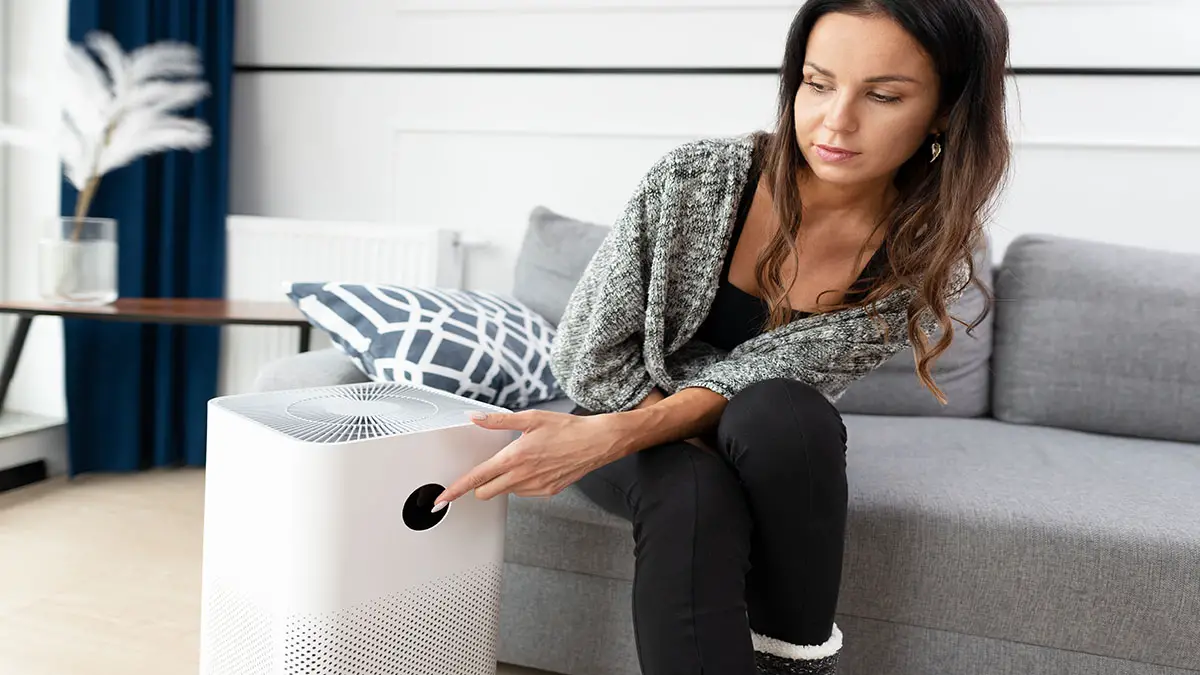If you own an air purifier, you may wonder how often to run your air purifier to keep your indoor air clean and healthy. The answer depends on several factors, including the size of your home, the air quality in your area, and the type of air purifier you have.
Outdoor pollutants are always entering our homes. Running your air purifier continually is best for optimal air purification. An air purifier with an Air Quality Sensor and Auto Mode will adjust the fan speed to maximize efficiency and cleanliness.
Read More: Best Air Purifiers & Reviews
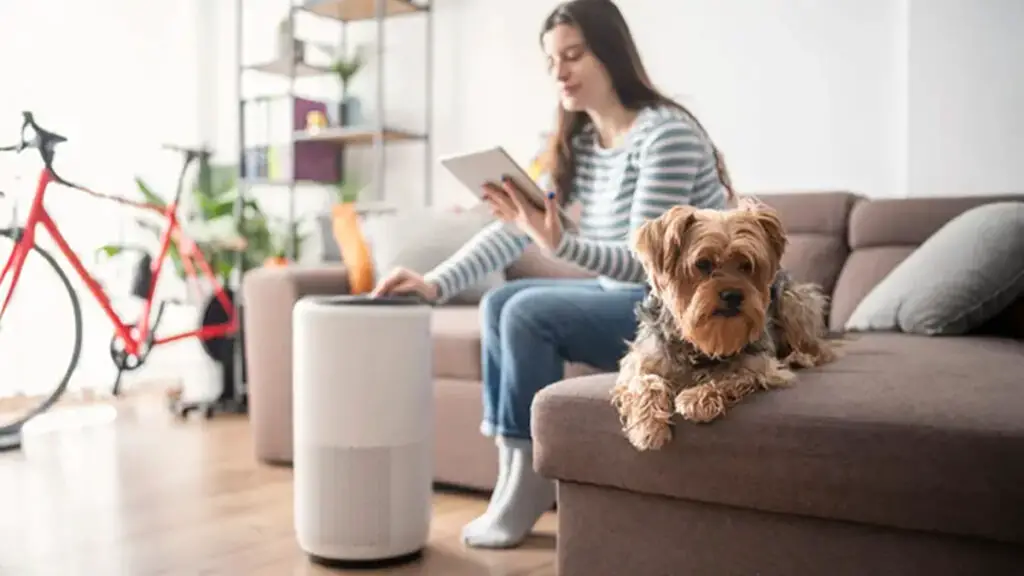
Understanding Air Purifiers
If you are considering purchasing an air purifier, it is essential to understand how these devices work and what features to look for. An air purifier is a device that removes pollutants and contaminants from the air in a room or enclosed space. Air purifiers can benefit people with allergies, asthma, or other respiratory conditions.
Filter Types
Air purifiers typically use one or more filters to remove pollutants from the air. The most common types of filters are HEPA filters and activated carbon filters.
- HEPA filters are designed to remove small particles from the air, such as dust, pollen, and pet dander.
- Activated carbon filters are designed to remove odors and chemicals from the air, such as cigarette smoke and volatile organic compounds (VOCs).
Air Extraction Rate
Another feature to consider when purchasing an air purifier is the air extraction rate. This refers to how quickly the air purifier can filter the air in a room. The air extraction rate is typically measured in cubic feet per minute (CFM). A higher CFM means that the air purifier can quickly filter the air in a room.
Smart Air Purifiers
Some air purifiers have smart features like connecting to a smartphone app or other smart home devices. Smart air purifiers can be controlled remotely, and some can even adjust their settings based on the air quality in the room.
Ionizers and Ultraviolet Light
Some air purifiers use additional technologies to remove pollutants from the air.
- Ionizers use charged particles to attract and remove contaminants from the air.
- Ultraviolet light can also kill bacteria and viruses in the air.
Why Run an Air Purifier
If you are concerned about air quality inside your home, you may want to consider running an air purifier. Air purifiers are designed to filter out pollutants, allergens, dust, and other indoor pollutants that can negatively impact the air quality inside your home.
Air pollution is a serious problem in many parts of the world, and it can significantly impact your health. According to the World Health Organization, air pollution is responsible for 7 million deaths yearly. 1
By running an air purifier in your home, you can help reduce exposure to harmful pollutants and improve indoor air quality, especially for allergies or asthma.
Air purifiers can help to filter out allergens and other contaminants that can trigger allergies and asthma symptoms. This can help you to breathe easier and reduce your risk of experiencing asthma attacks or allergy symptoms.
Air purifiers can also be helpful if you live in an area with high air pollution or are exposed to second-hand smoke. By filtering out harmful toxins and pollutants, air purifiers can help to improve your overall health and reduce your risk of developing respiratory problems or other health issues.
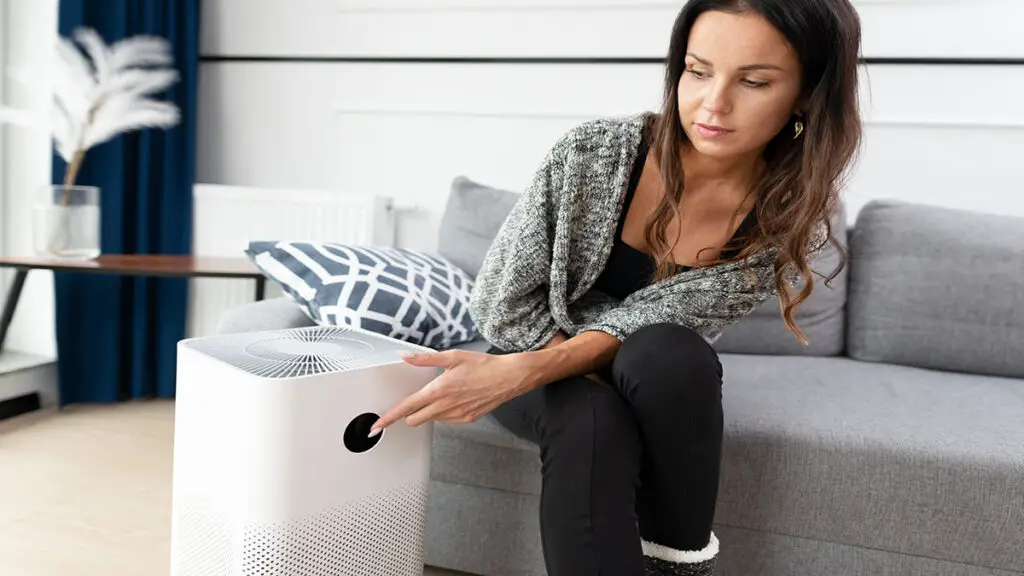
How Often to Run Your Air Purifier
When running your air purifier, there are a few factors to consider. The frequency of use will depend on the size of your home, the air quality in your area, and the level of pollutants in your home.
If you live in an area with high pollution levels or have allergies or asthma, running your air purifier 24/7 is recommended. This ensures that the air in your home is continuously filtered, providing you with clean air to breathe.
Running your air purifier for a few hours daily may be sufficient for those with less severe air quality concerns. This can help remove any pollutants that have accumulated throughout the day.
It is also important to consider the running time of your air purifier. Most air purifiers have a recommended run time of 8 to 12 hours daily.
If unsure how often to run your air purifier, consult the manufacturer’s recommendations or speak with a professional. They can guide your specific needs on the best running time and frequency.
Air Purifier Efficiency and CADR
Regarding air purifiers, one of the most important factors to consider is their efficiency. The efficiency of an air purifier is measured by its Clean Air Delivery Rate (CADR).
CADR is a rating that measures the amount of clean air an air purifier can deliver in a specific amount of time. The higher the CADR rating, the more efficient the air purifier is at removing pollutants.
CADR ratings are typically given for three types of pollutants: smoke, pollen, and dust. When shopping for an air purifier, choosing one with a CADR rating appropriate for the size of the room you plan to use it in is important.
Another important factor to consider is air changes per hour (ACH). ACH measures how often the air purifier completely replaces the air in a room in one hour. The higher the ACH rating, the more often the air is cleaned.
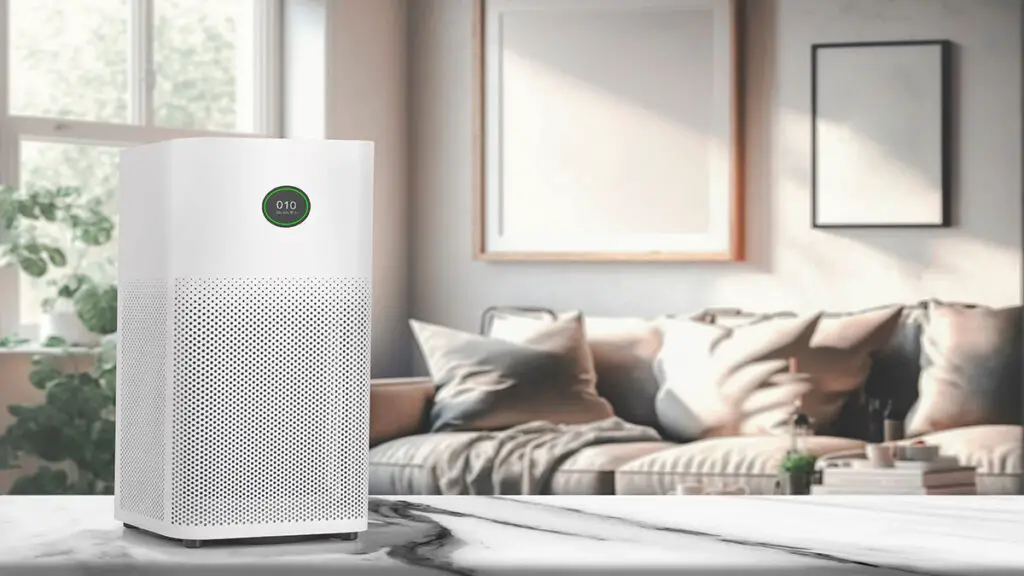
Air Purifier and Sleep
If you struggle to fall or stay asleep, you might have considered using an air purifier in your bedroom. Air purifiers, like the Alen Breathesmart 45i, use pink noise, which studies show promotes deep sleep.
One potential benefit of using an air purifier while you sleep is the white noise it produces. White noise is a type of noise that is made by combining sounds of different frequencies.
Consistent background noise can help mask other sounds that might keep you awake, such as traffic or noisy neighbors. Many people find that white noise helps them fall asleep faster and stay asleep longer.
Another way that air purifiers might help improve your sleep is by reducing the number of allergens and pollutants in the air. If you suffer from allergies or asthma, these particles can irritate and make breathing difficult, impacting your sleep quality. By removing these particles from the air, air purifiers can help create a more comfortable sleeping environment.
Filter Maintenance and Replacement
To ensure that your air purifier is working effectively, it is important to maintain and replace the filters regularly. Most air purifiers come with a HEPA filter and an activated carbon filter. The HEPA filter removes small particles from the air, while the activated carbon filter removes odors and chemicals.
How often should you clean the filters?
The frequency of filter cleaning depends on the air quality in your home and how often you use the air purifier. If you have pets or live in an area with high pollution levels, you may need to clean the filters more frequently.
How often should you replace the filters?
In addition to cleaning the pre-filters, you should replace HEPA filters periodically. Most air purifier manufacturers recommend replacing the filters every six to 12 months. However, this can vary depending on the air quality in your home and how often you use the air purifier.
It is important to note that some air purifiers have a filter replacement indicator that will notify you when it is time to replace the filters.
How to clean and replace the filters
Cleaning and replacing the air filters is a simple process. Remove the filters from the air purifier and use a vacuum cleaner to remove any dust and debris. If they are filthy, you should replace the HEPA filter.
Air Purifiers and Health
Air purifiers have become increasingly popular in recent years due to their ability to improve indoor air quality. They work by removing harmful particles from the air, including allergens, bacteria, pet dander, dust mites, and viruses, which can cause respiratory diseases. But how often should you run your air purifier to maintain a healthy living environment?
Health professionals recommend running your air purifier continuously to maintain a healthy living environment, especially if you suffer from allergies or respiratory diseases. 2
Running your air purifier continuously will ensure that the air in your home is always clean and safe to breathe. It will also help prevent the spread of disease and reduce the risk of infection.
If you live in an area with low levels of air pollution, you may be able to run your air purifier on a schedule or Auto Mode, such as for a few hours in the morning and evening.
Air Purifier Placement and Room Size
Regarding air purifiers, placement, and room size are important factors to consider. The size of the room where you plan to use the air purifier will determine the unit size you need. Larger rooms require larger air purifiers, while smaller rooms require smaller ones.
To determine the size of the air purifier you need, measure the room’s square footage. Most air purifiers will list the maximum square footage they can effectively clean. Make sure to choose an air purifier that can handle the size of your room.
In addition to size, where you put the air purifier in the room can also impact its effectiveness. It’s best to place the air purifier on the floor in the room where you spend the most time. You can place the unit on a nightstand for small bedroom air purifiers.
If you have multiple rooms you spend a lot of time in, consider purchasing multiple air purifiers or a portable unit that can be easily moved from room to room.
When placing the air purifier, ensure it is not obstructed by furniture or other objects. Air purifiers work by circulating air through the unit, so it’s important that the air can flow freely. Place the air purifier at least a few feet away from walls and furniture for optimal airflow.
Air Purifiers and Energy Consumption
One of the most common concerns is energy consumption. After all, you don’t want to run your air purifier all day if it will drive up your energy bill.
Scientists did a study to see how much electricity air purifiers use in homes. They checked two types of air purifiers: one that adjusts itself automatically and another where you can change the settings. They tested these air purifiers in six houses in Seattle for one week each. They measured how much power the air purifiers used, how clean the air was, the temperature, and the humidity every 10 seconds.
They found that both air purifiers used about 7 watts of power. This is like using about 5 kilowatt-hours of electricity each month if the air purifier is always on. The automatic air purifier uses about 3% more electricity than the other. 3
Most air purifiers have multiple fan speeds; the higher the fan speed, the more power the unit consumes. If you’re concerned about energy consumption, consider running your air purifier in auto mode or at a lower fan speed. This will use less energy while still providing adequate air cleaning.
Some air purifiers are more energy-efficient than others, so it’s worth researching before you buy. Look for an air purifier with a high CADR (Clean Air Delivery Rate) and an Energy Star rating. These units are designed to be energy-efficient while still providing excellent air-cleaning performance.

Air Quality Monitoring
To determine how often to run your air purifier, you need to monitor the air quality in your home. An air quality monitor can help you measure the level of pollutants in your indoor air, such as PM2.5, VOCs, and CO2.
An air quality monitor can give you real-time data on the air quality in your home, and some models even come with air quality indicators that use color-coded lights to show you the current air quality level. This can help you determine when to turn on your air purifier and when to open windows or take other steps to improve the air quality in your home.
When monitoring your air quality, it’s important to pay attention to the levels of pollutants in your home. For example, if you live in an area with high levels of outdoor air pollution, you may need to run your air purifier more often to keep the indoor air clean.
Frequently Asked Questions
Can I run my air purifier all day?
Yes, you can run your air purifier all day if needed. Most air purifiers are designed to run continuously without harming the unit or the air quality in the room.
Should I run an air purifier all the time?
Running an air purifier continuously is generally recommended for optimal air quality, especially in areas with high pollution or allergen levels. The continuous operation ensures consistent air purification and maintenance of air quality.
How long does it take an air purifier to clean a room?
The time it takes for an air purifier to clean a room depends on the purifier’s Clean Air Delivery Rate (CADR) and the room’s size. Typically, significantly improving air quality can take 30 minutes to 2 hours.
Do air purifiers run up your electric bill?
Air purifiers do consume electricity, but most modern models are energy-efficient. The impact on your electric bill depends on the unit’s wattage and how long it runs daily.
Should an air purifier be on the floor?
Placing an air purifier on the floor is fine, but it should be in a location with unobstructed airflow. Some models may be more effective if elevated or placed at breathing level.
When should I turn my air purifier off?
You can turn off your air purifier when you need to clean or replace the filters or if you’re away from home for an extended period. Otherwise, continuous operation is usually recommended.
Which is the best air purifier?
The best air purifier depends on your needs, including room size, type of pollutants (allergens, smoke, or pet dander), and budget. Look for models with high CADR ratings and Multi-stage HEPA filters.
- World Health Organization: Air Pollution.
- Fazlzadeh M, Salarifar M, Hassanvand MS, Nabizadeh R, Shamsipour M, Naddafi K. Health benefits of using air purifier to reduce exposure to PM2. 5-bound polycyclic aromatic hydrocarbons (PAHs), heavy metals and ions. Journal of Cleaner Production. 2022 Jun 10;352:131457.
- Xiang J, Huang CH, Austin E, Shirai J, Liu Y, Seto E. Energy consumption of using HEPA-based portable air cleaner in residences: A monitoring study in Seattle, US. Energy and buildings. 2021 Apr 1;236:110773.



